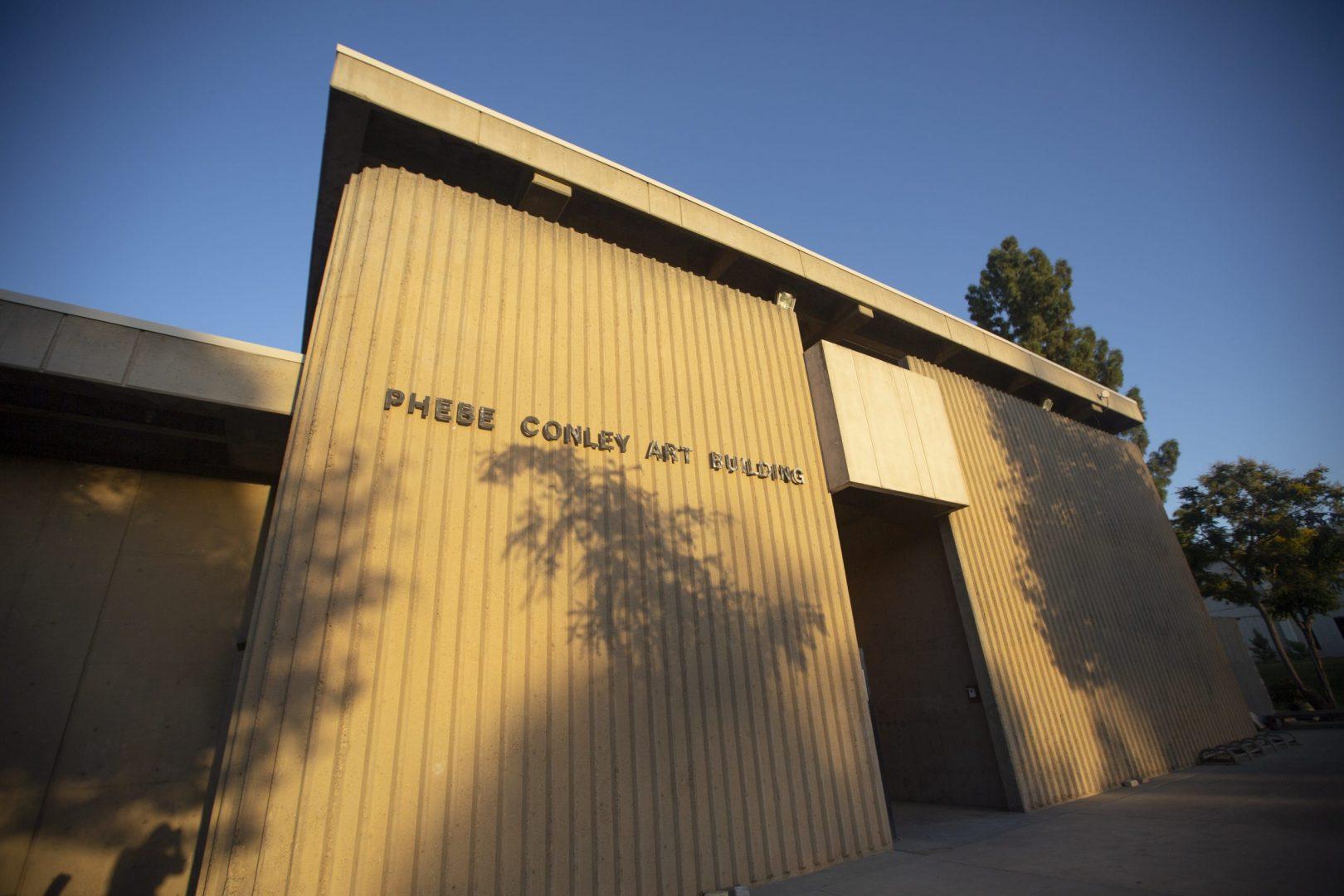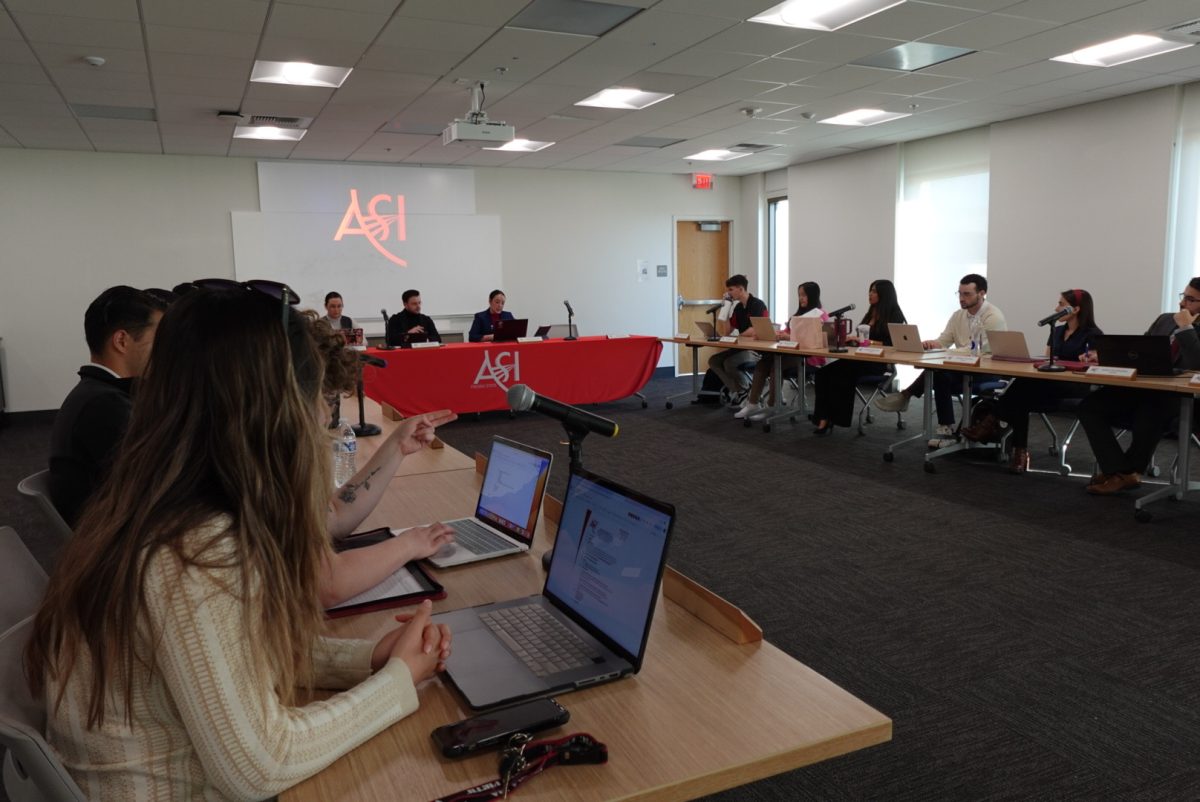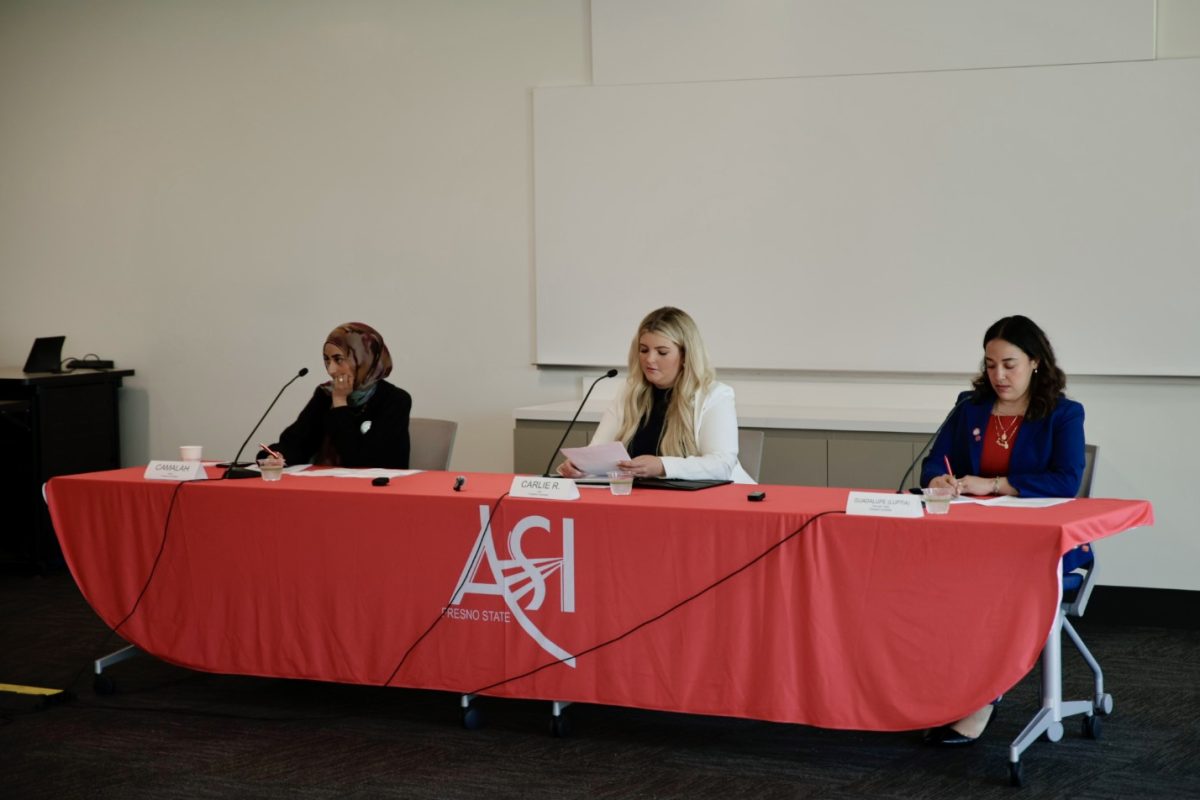Canceled protest led to the closure of Conley Art Building
Nov 15, 2022
The death of Hoover High School student Rashad Al-Hakim Jr., who was hit by a car on Oct. 4 outside the high school, continues to stir controversy on the Fresno State campus.
The Conley Art Building was closed on Oct. 25 in anticipation of a protest against the Fresno State graduate student named as the driver who struck Al-Hakim Jr. Even after the protest was canceled and a public announcement said that the building had been reopened, administrators kept the building closed, citing safety concerns.
These actions came amid racial tensions that had already surfaced among social media users in the community as they called for further action against the driver.
Shortly after the death of her son, Al-Hakim’s mother, Ragina Bell, at an Oct. 20 Fresno City Council meeting named Lisa Spoors, a Fresno State graduate teaching assistant, as the driver who struck him.
Online, many people say that racial tensions have been present throughout Al-Hakim Jr.’s case. He is a Black student and Spoors is a white graduate student.
Because of an ongoing investigation, the Fresno Police Department has not confirmed whether Spoors was the driver or if charges have been filed. Spoors is no longer teaching this semester at Fresno State, according to campus officials.
The Collegian made a public records request and obtained the emails between Fresno State faculty and staff discussing the decision to close the building.
Campus officials first appeared to have learned about the protest against Spoors on Oct. 21, when a staff member emailed a social media post announcing it to Honora Chapman, dean of the College of Arts and Humanities.
The next day, on Oct. 22, Chapman emailed Fresno State Provost Xuanning Fu, informing him that the building would be closed because of concern for property damage. Chapman said emails were planned to be sent only to members of the Department of Art, Design and Art History (ADAH).
“What language may we use for the Tuesday closure of the gates of Conley and all classes going online on Tuesday? We plan to ask the police to not unlock the doors and to keep the gates all locked in order to protect the glass cabinets and large windows in the courtyard,” Chapman wrote to Fu.
On Oct. 23, Fu and Chapman exchanged several more emails about the closure.
“I’ll ask campus police to [lock] all gates after the [last] Monday night class and ask that they not unlock the print shop or any other exterior door beyond the gates on Tuesday… except CA 101, the lecture hall beyond the gates,” she wrote.
At 7:40 p.m., ADAH Department Chair Holly Sowles sent an email to faculty, explaining the protest and the building’s closure.
“Due to a planned protest at the Conley Art Building on Tuesday, the building will be closed for the day and no one will be allowed on the premises,” Sowles wrote.
However, the protest had already been canceled earlier that day. The Collegian learned of the closure from social media that morning.
Students in the ADAH department were informed of the building’s closure via email at 2:03 p.m. on Oct. 24. However, at 11:46 a.m. that same day, Lauren Nickerson, associate vice president of University Communications, informed the Office of the President and Fresno State PD in an email that the protest was canceled.
“We no longer need to move classes online tomorrow. The protest is canceled. If you have notified faculty about that, please follow up with them,” Fu wrote to Chapman in an email at 12:22 p.m.
Nineteen minutes later, he asked Chapman to call his cellphone. Nine minutes after that, Chapman emailed Fresno State PD to keep the gates locked, despite the protest being canceled.
“Just in case anybody shows up to protest, please do keep it all locked tomorrow as planned. It’s better to be over-cautious,” Chapman wrote in the email.
At 4 p.m., Chapman emailed campus police again, making sure the “buildings should stay locked” but to leave “the Conley courtyard open in case students wish to go sit there and use the internet.”
In an article published Oct. 25, The Collegian originally reported that the art building would remain open, attributing that information to a university spokesperson. The spokesperson at that time would not confirm that the closure of the art building was connected with the potential protest.
Two weeks later, Chapman did confirm that connection in response to questions from The Collegian.
Chapman’s responses were relayed by Lisa Bell, Fresno State’s public information officer, via email.
“[Chapman] spoke with [Sowles] after learning about a social media post calling for a protest at the art building that was seeking justice from Fresno State and the Fresno Police in the matter of a Fresno State graduate student in art. With respect to the department of Art, Design and Art History, several things were concerning about this social media post,” Bell wrote, answering for the dean.
The post was concerning for the dean and Fresno State because it incorrectly identified Spoors as a professor, according to the response. It was also concerning that the protest was seeking the firing and arrest of the student, Bell wrote.
“The demand for firing the graduate student who was teaching a course was directed to the wrong place, since the department of ADAH does not technically hire professors or graduate teaching associates,” she wrote.
Disruption was also another reason the department and the dean decided to close the building. Since there’d be no faculty supervision, the building was closed to protect the “valuable equipment” and “student art,” according to Bell’s email.
Fresno State administration received no information regarding whether there were any safety risks on campus due to the protest.
However, administration did receive information from the Multi-Agency Gang Enforcement Consortium (MAGEC), an agency of the Fresno County Sheriff’s Office that combats gang violence, on Oct. 24, the day before the closure.
“Per MAGEC, it isn’t completely off. Good chance the kids from Hoover will still walk out,” wrote Lt. Jennifer Horsford of Fresno PD to Fresno State PD Chief James Watson in an email on Oct. 24 at 2:43 p.m.
It is unclear why MAGEC was involved. The agency informed Watson that there’s a chance that students from Hoover High School, where Al-Hakim Jr. was attending, would walk off campus and the protest would continue.
“The post on Friday the 21st had provided a picture of the [Fresno State graduate] student for identification. There was a potential safety issue if the protesters decided to look for this particular graduate student in the various Conley Art buildings,” Chapman said, according to Bell’s statement.
There was no protest or walkout the day of the closure.
Nickerson, in an interview, said Fresno State did cooperate with the Fresno PD to ensure the “safety of the high school students.” She said the partnership was to offer them a safe passageway, as well as water and audio equipment for the protesters.
After the news of the protest’s cancellation, Watson was informed that Fresno PD was still “gearing up” in case it was still ongoing.
In an in-person interview with The Collegian, Fresno State President Saúl Jiménez-Sandoval said decisions to close down buildings are made by the deans and department chairs of the respective areas. There is no university policy when it comes to closing a building and reporting it to administration, he said.
Buildings have remained open during protests in buildings such as at McLane Hall last spring, where the Fresno State College Republicans club hosted its “Future of America” event. Event speakers John Doyle, Carson Wolf and Kai Schwemmer prompted backlash and a protest from many campus community members.
When questioned why this potential protest led to the Conley Art Building’s closure, Jiménez-Sandoval said it depends on the deans.
“It’s a different space; it’s a different dean; and it’s a different situation, as well,” he said.
Chapman said the Oct. 25 protest would have disrupted the classes more than the protest that occurred in McLane Hall. One of the reasons for her and Sowles’ decision was the day itself.
Chapman noted that the protest at McLane Hall was on a Friday afternoon while Oct. 25 was a Tuesday, a busy time for the art classes in the Conley Art Building. Her decision was also deferred because of the context of the protest.
“The McLane protesters were not seeking justice with respect to a Fresno State graduate student allegedly involved in the tragic death of a child. Instead, they objected to the speakers’ ideas, so they protested,” Chapman said in Bell’s email.
She also said the building is closed when there are no workers there, due to the large amount of specialized equipment.
Jiménez-Sandoval emphasized Fresno State’s freedom of speech policies, but said decisions like the art building’s closure illustrate the need for policy changes.
“This does point to the need, in situations like this, [the] need to become more involved as far as what our response is going to be in the future. I do see there’s a space in which we can develop a policy on how we, as a university, as an entity, respond to situations like this in the future,” Jiménez-Sandoval said.
Chapman said she wanted to respect the protesters’ freedom of speech while also minimizing any disruptions for ADAH students.
“I am heartbroken about the death of Rashad Al-Hakim Jr., a promising young man with a whole life ahead of him. His memory will live on in those who knew and loved him and in those who emulate his excellence in the future,” she said.
Chapman also understands the need to protest and speak out.
“I also empathize with the Black community’s desire to take action after Rashad’s death, since the authorities had not named the driver and were taking time to investigate the matter,” she said.
Jiménez-Sandoval said he’s deciding whether a dean and department chair should be the only people to decide a building closure in situations like these.
“As of now, we don’t have a structure through which a dean decides, ‘I’m going to close this for the following reasons, and I’m going to report it to the provost…’ That’s the issue that I’m trying to determine moving forward,” Jiménez-Sandoval said.
Nickerson added to this, saying, “We do allow a lot of flexibility, and that’s not necessarily something that goes through the office of the president.”
However, Fu and Chapman did communicate back-and-fourth through at least 26 emails from Oct. 22-25, where Fu can be seen aiding Chapman about the closure.
Since Spoors is protected under the Family Educational Rights and Privacy Act (FERPA) and the Union of Auto Workers and Grad Students (UAW), Fresno State is not allowed to comment on the ongoing investigation, according to Jiménez-Sandoval.







